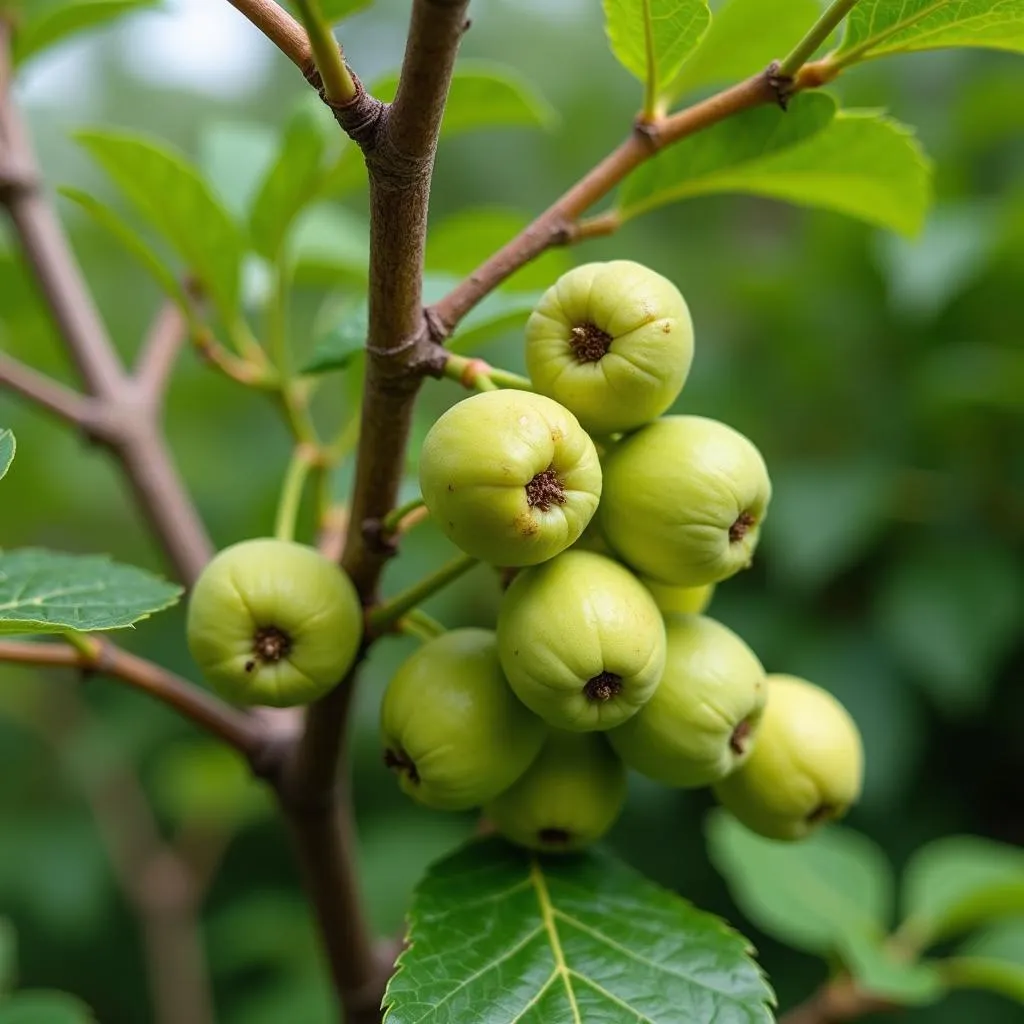Bhumi Amla, also known as Phyllanthus Niruri, is a potent medicinal herb found abundantly in various parts of Pakistan. This remarkable plant has garnered significant attention for its therapeutic properties, particularly in traditional medicine systems like Ayurveda and Unani.
Understanding Bhumi Amla: A Closer Look
Bhumi Amla is a small, erect herb that typically grows in shady, moist areas. It features tiny leaves, inconspicuous flowers, and small, spherical fruits that resemble gooseberries in appearance. In Pakistan, Bhumi Amla thrives in regions with tropical and subtropical climates.
 Bhumi Amla Plant in Pakistan
Bhumi Amla Plant in Pakistan
The Medicinal Properties of Bhumi Amla
This unassuming herb is a powerhouse of beneficial compounds, including lignans, flavonoids, tannins, and alkaloids. These bioactive components contribute to Bhumi Amla’s wide-ranging therapeutic effects:
- Liver Support: Bhumi Amla is renowned for its hepatoprotective properties, meaning it helps protect the liver from damage. It is traditionally used to treat jaundice, hepatitis, and other liver disorders.
- Antioxidant Action: The rich antioxidant profile of Bhumi Amla helps combat oxidative stress, which is linked to various chronic diseases.
- Antiviral Effects: Studies suggest that Bhumi Amla possesses antiviral properties, potentially inhibiting the replication of certain viruses.
- Anti-inflammatory Benefits: This herb exhibits anti-inflammatory effects, potentially aiding in managing inflammatory conditions.
- Diuretic Properties: Bhumi Amla is believed to act as a natural diuretic, promoting urine production and potentially supporting kidney health.
Traditional and Modern Uses of Bhumi Amla in Pakistan
In Pakistan, Bhumi Amla has been a staple in traditional medicine systems for generations. It is commonly employed to address a variety of health concerns:
- Jaundice and Liver Health: Bhumi Amla is highly regarded for its effectiveness in managing jaundice, a condition characterized by yellowing of the skin and eyes due to liver dysfunction.
- Urinary Tract Infections: Its diuretic and antimicrobial properties make it a popular remedy for urinary tract infections.
- Digestive Issues: Bhumi Amla is used to alleviate digestive problems such as indigestion, diarrhea, and dysentery.
- Skin Conditions: Topically, Bhumi Amla is applied to treat skin infections, wounds, and eczema.
Furthermore, Bhumi Amla is gaining recognition in modern medicine, with ongoing research exploring its potential applications in areas like diabetes management and cancer treatment.
Finding Bhumi Amla in Pakistan
Bhumi Amla is readily available in Pakistan through various avenues:
- Local Herbalists: Traditional herbalists, known as “hakims” or “vaids,” often stock dried Bhumi Amla plants or preparations.
- Herbal Medicine Shops: Numerous shops specializing in herbal medicine and Ayurvedic products across Pakistan offer Bhumi Amla in various forms.
- Online Marketplaces: Reputable online retailers and platforms dedicated to natural health products often carry Bhumi Amla.
Using Bhumi Amla Safely
While Bhumi Amla is generally considered safe, it’s crucial to exercise caution and consult with a qualified healthcare professional before using it, especially if pregnant, nursing, or have underlying health conditions.
Conclusion
Bhumi Amla stands as a testament to the healing power of nature. Its presence in Pakistan offers a readily accessible and potentially valuable resource for promoting health and well-being. As research continues to uncover its therapeutic benefits, Bhumi Amla holds the promise of becoming an even more integral part of healthcare practices.
Frequently Asked Questions (FAQs)
1. Can I grow Bhumi Amla at home in Pakistan?
Yes, Bhumi Amla can be cultivated in home gardens in Pakistan, particularly in regions with warm, humid climates.
2. What is the best way to consume Bhumi Amla?
Bhumi Amla can be consumed in various forms, including fresh juice, decoction (herbal tea), powder, or capsules.
3. Are there any side effects of using Bhumi Amla?
While generally safe, excessive or prolonged use of Bhumi Amla may lead to side effects like stomach upset or loose stools.
4. Where can I learn more about the traditional uses of Bhumi Amla In Pakistan?
Consulting with local herbalists, Ayurvedic practitioners, or traditional healers in Pakistan can provide valuable insights.
5. Is there ongoing research on Bhumi Amla in Pakistan?
Yes, several research institutions and universities in Pakistan are actively investigating the medicinal properties and potential applications of Bhumi Amla.
Need more information about Bhumi Amla in Pakistan? Don’t hesitate to reach out to us! Call: +923337849799, Email: news.pakit@gmail.com or visit our office at Dera Ghazi Khan Rd, Rakhni, Barkhan, Balochistan, Pakistan. Our customer service team is available 24/7 to assist you. You can also explore more health-related topics on our website.